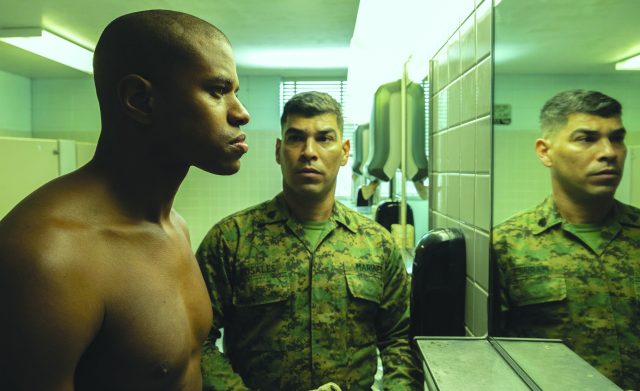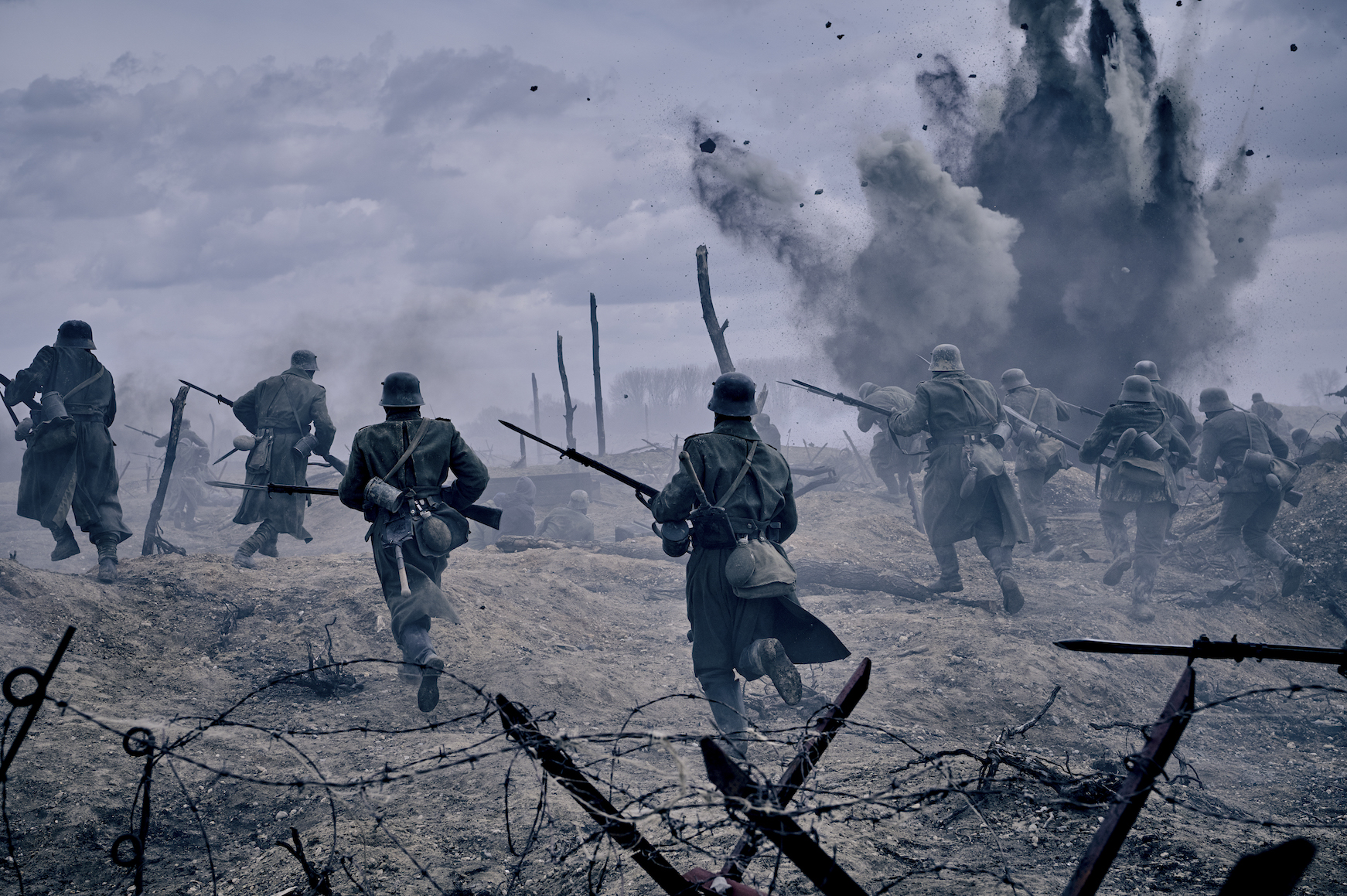
Ellis French (Jeremy Pope), a gay Black 20-something, trades the cold streets of New York City for the harsh regiment of Marine boot camp. Here, French and his fellow recruits undergo intense training designed to break them down, only to be built back up into “monsters,” as drill instructor Laws (Bokeem Woodbine) explains. It’s cruel, but it’s all in the interest of making indestructible believers in unit, corps, God and country.
But for French, that cruelty is exacerbated all the more by his sexual orientation, which does not remain a secret for long. The abuse and ridicule French endures are significant, though as he explains in the movie’s centerpiece, it’s still a better option than the one he left and the one waiting for him if he does not graduate.
Set in 2005 and filmed in a sometimes realistic, sometimes impressionistic style, The Inspection is a satisfying piece of performance, character and tone. Written and directed by Elegance Bratton, the movie is based on the filmmaker’s experience in “don’t ask, don’t tell”-era boot camp. The majority of the narrative is confined to the 13-week training, but Bratton sprinkles moments that extend into the world beyond.
Laws is a terrifying and imposing figure in the bunkhouse, but when in his cups, he reveals himself to be more bully than revolutionary. Rosales (Raúl Castillo), the source of French’s fantasies, is having troubles at home. And French’s mom, Inez (Gabrielle Union), says everything about French’s upbringing with her silence. Only when she addresses the elephant in the room does her character tip into caricature.
Still, The Inspection is an engaging movie with two central performances from Pope and Castillo that linger in the mind long after the screen goes dark.
ON SCREEN: The Inspection, in theaters Dec. 1.

The soldier is shot. One bullet to the head just as he was going over the top. We learn his name, Gerber, but little else. The year is 1917, three years into the War to End All Wars.
But Gerber is neither person nor individual. He is a soldier for the German army. He served his country, and now his time is up. So his tag is retrieved, his body stripped, his uniform washed, patched, folded and presented to another German excited to serve his country. He is Bäumer (Felix Kammerer), and he’s even younger than Gerber. By the movie’s end, Bäumer, too, will be replaced. This time by a soldier who doesn’t even look like he’s finished puberty.
Based on Erich Maria Remarque’s 1928 novel, All Quiet on the Western Front is the first time a German production has tackled the material. It’s fascinating, haunting and queasy, a powerful work that’ll turn off even the most ardent warmongers.
Director Edward Berger spares the soldiers no humiliation, no level of hunger or pain, and Volker Bertelmann’s score stings, turning even moments with a glimmer of life into a melancholy dirge. There is no light here, only death and misery. And when the horn blows on the 11th hour of the 11th day of the 11th month, a little text and a simple shot prove it was all for naught.
ON SCREEN: All Quiet on the Western Front, streaming on Netflix.














